Photographs: Reuters Sanjaya Baru
Every author loves a book launch.
The Reserve Bank of India's former governor Yaga Venugopal Reddy, who was known for his low-profile persona in office, is now happy to follow the fashion among Indian policy makers and pundits of selling books with a gala launch.
As he prepares to catch a flight to Mumbai for the first of three launches in the week on Monday, the other two being in New Delhi (Thursday) and Hyderabad (Saturday), Reddy finds time for a conversation over an early breakfast with Sanjaya Baru.
. . .
'Delhi worried about growth, RBI about stability'
Why another collection of lectures and not an unabashed book on his tenure as governor, I ask Reddy, echoing the view of his guru that he acknowledges in the book.
"That will be my next book," he says, confessing, "Subbarao (his successor at RBI) said this is a lazy man's effort. A collection of lectures." I agree. It is far too repetitive because many themes recur in several chapters.
You should write a Hank Paulson (On The Brink) kind of book, I say to him. He tried reading Paulson but gave up after a few pages. He felt it was not an honest account of what happened.
Will he write one that bares all and tells us about internal debates on policy, within RBI, between RBI and the ministry of finance, his battles with his critics? He says he will give it a shot.
So let us talk about your next book, I tell him, arguing that most Business Standard readers would have read most of the important speeches collected together in this volume in the columns of this newspaper.
. . .
'Delhi worried about growth, RBI about stability'
He proposes we meet for breakfast at seven -- a terrible habit with bankers around the world.
He says it is a childhood habit from a rural upbringing.
When you live in a village you wake up with the sun and go to bed once it sets. So all those years in Hyderabad, New Delhi, Washington DC and Mumbai -- the four cities in which he has worked -- haven't made him a late riser.
He chooses the neighbourhood Taj Banjara in Hyderabad's Banjara Hills, close to both our homes.
At 7 am, the only others up for breakfast are a couple of foreigners, presumably Americans from the IT world that you always run into in a Hyderabad hotel.
. . .
'Delhi worried about growth, RBI about stability'
He orders muesli with cold milk, toast, fried eggs and tea. I order a plate of idli and south Indian coffee.
Was it just good luck or did he have an alternative world view that insured India against the worst of the trans-Atlantic financial crisis?
Was India saved by chance or choice?
He takes full credit for policy, sharing it liberally with New Delhi, and a supportive RBI board.
"I had an excellent equation with both the finance minister and prime minister. Even when they disagreed with me they always supported me."
He concedes his tenure got off to a good start because then finance minister Jaswant Singh gave him a five-year tenure.
. . .
'Delhi worried about growth, RBI about stability'
The last governor to get that was I G Patel in 1977 from the Morarji Desai-H M Patel team. Security of tenure enhances institutional autonomy, he says.
The change of government in 2004 did not make a difference. He had worked before with both Prime Minister Manmohan Singh and Finance Minister P Chidambaram.
He gives credit to 'political management' by the two for protecting India from the full impact of the trans-Atlantic financial crisis.
The central bank did many difficult things that helped -- the restrictions placed on overseas corporate bodies in 2003, the liberalisation of overseas acquisitions by Indian firms, the cleaning up of weak banks, the reform of urban cooperative banks, supervision of non-banking financial companies, managing the farm loans waiver and implementation of contra-cyclical regulation -- but all this was possible because Delhi supported him.
. . .
'Delhi worried about growth, RBI about stability'
There were differences between RBI and MoF. The latter was more focused on growth, the former on stability.
"Delhi did not want to kill the animal spirits of enterprise. We worried more about the stability of growth."
There were 'ideological differences' within the core macroeconomics team (he includes Manmohan Singh, P Chidambaram, C Rangarajan, Bimal Jalan and Montek Ahluwalia in it) -- on financial market development and the integration of financial markets, on capital account liberalisation, on monetary policy and exchange rate management.
The differences with most (barring Ahluwalia) were rarely about the direction of policy, they were mostly about the pace and magnitude of change.
. . .
'Delhi worried about growth, RBI about stability'
Chidambaram is very knowledgeable about markets, concedes Reddy, he knew what he was talking about.
"He thought I was far too conservative, and I agreed. But I did not regret my conservatism. We balanced each other!"
He says Chidambaram always backed him on institutional issues. His choice of deputy governors was never questioned.
He is worried about recent trends -- the creation of the financial stability and development council.
"The RBI governor is more than just a regulator, he is also a policy maker. RBI is the monetary authority."
. . .
'Delhi worried about growth, RBI about stability'
MoF should be a coordinator and not an arbitrator between regulators.
The MoF representative on other boards is a joint secretary with voting powers, but on the RBI board MoF's only representative is the finance secretary and he cannot vote.
So the RBI governor has a special status that he fears may be getting diluted.
Did he ever feel helpless dealing with MoF?
When the rupee started appreciating in 2007, he recalls.
Chidambaram was talking it up and RBI had no choice but to allow this.
MoF did not have a full appreciation of the impact of the rupee appreciation on the real sector.
The adverse impact was understood only after it hit growth in the real sector.
. . .
'Delhi worried about growth, RBI about stability'
Once MoF talked up the rupee, RBI had no choice but to step back and watch helplessly.
The idli and eggs are tucked in and tea and coffee arrive. We look out of the window at the lake and the temple on the other side.
Reddy recalls how he used to walk to that spot when he first came to this neighbourhood and would just sit there in quiet meditation.
Today the cacophony of a booming city and dense traffic drown the temple bells.
We return to the theme of the book.
He does not see the crisis having diminished the power of the financial sector and its high-flyers, even in India.
In the US, the 'regulated were driving deregulation' and the power of financial conglomerates remains.
He would, therefore, urge caution in giving out new bank licences in India. He commends his A M Khusro lecture (chapter 25) on financial sector regulation in India to the reader. Banks that are too big to fail are too big to exist, he says, repeating his known scepticism about bank consolidation.
. . .
'Delhi worried about growth, RBI about stability'
He is not too enthused by the global response to the crisis. Neither the International monetary Fund nor the G20 has yet grasped the fundamentals.
Globalisation of finance without global governance is a recipe for disaster.
Recent events in Europe are a reminder that all is still not well, so India's policy makers have to be on constant alert.
As he gets up to catch his flight to Mumbai, I can see that Reddy has not yet walked into a life of quiet retirement.
He is busy lecturing around the world, finding receptive audiences in China and Europe, and making sure his books get enough publicity, with the likes of Governor Subbarao, Economic Advisor Kaushik Basu, former colleague Usha Thorat and even ministers Jaipal Reddy and Jairam Ramesh helping him with the launch.

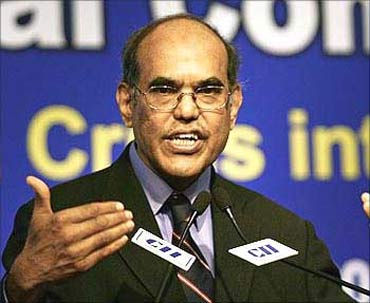
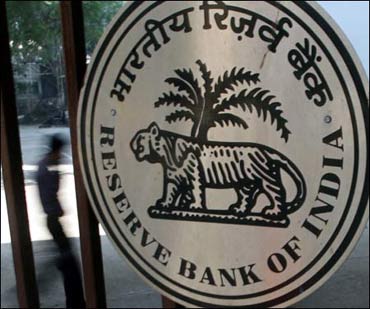
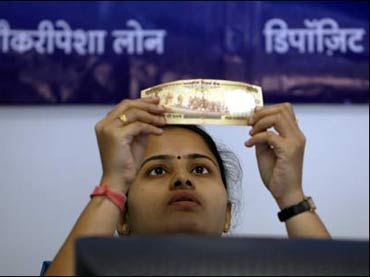
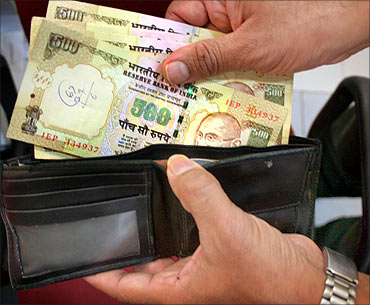
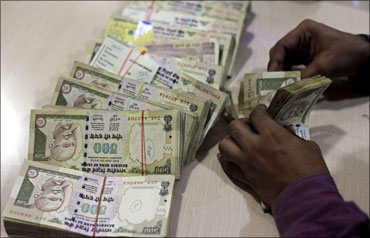
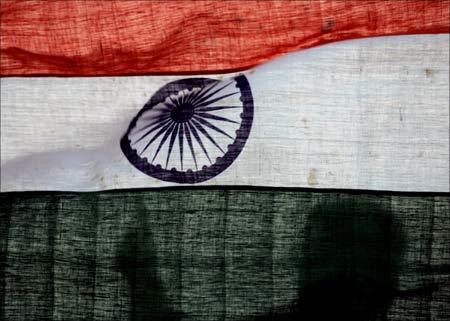

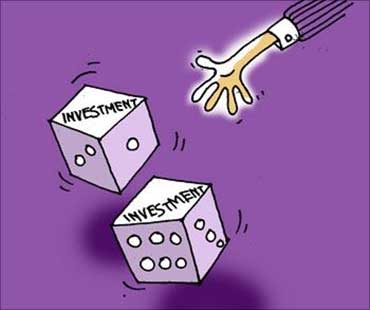
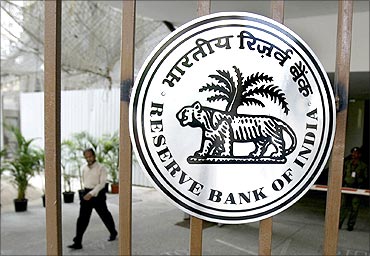
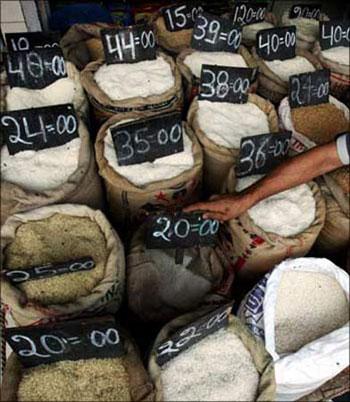

article